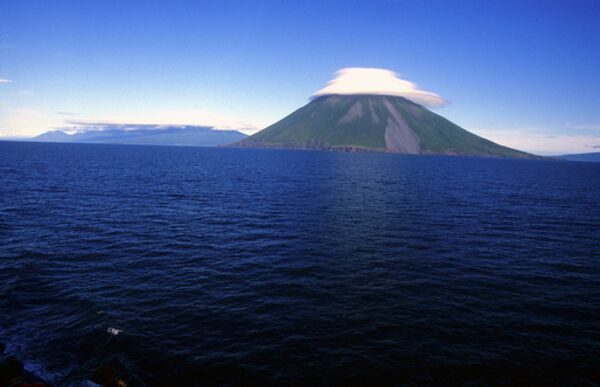The Russian Foreign Ministry summoned U.S. Ambassador John Beyrle on February 21 to register disapproval of America's support for Japan's territorial claims on the disputed southern Kuril Islands. But this is just a war of words.
Deputy Minister Alexei Borodavkin reiterated to the ambassador Russia's "principled and consistent position on its sovereignty over the southern Kuril Islands", the ministry said in a statement. This move was no doubt a response to recent statements by officials of the U.S. State Department expressing support for Japan's territorial claims. Neither side appears willing to cede ground.
Russian Presidential Aide Sergei Prikhodko summed up Russia's position during a recent visit by Japanese Foreign Minister Seiji Maehara: "The sovereignty of the Russian Federation with respect to the Kuril Islands will not be subject to any review, either today or tomorrow."
Russian Foreign Minister Sergei Lavrov told a news conference following his meeting with Maehara that the two countries remain determined to work on a peace treaty but "without preconditions or unilateral historical references."
There is nothing remarkable about the recent escalation in this protracted territorial dispute. One gets the impression that the diplomats on both sides are merely going through the motions. One side reiterates its decades-old position, and the other is obligated to respond, then it's back to business as usual. Everybody knows that Russia will never relinquish the islands, just like Japan will never give up the Senkaku Islands, which China claims as its territory.
There are two schools of thought on the Kuril Islands dispute. The more conservative school holds that President Medvedev should not have travelled to the Kurils in November of last year. A lower ranking official could have been sent there to announce the government's new policies for the islands, including investment, economic development and bolstering the islands' defenses with S-400 missile systems. Presidential visits send a strong message, and as such, they should be used sparingly. If Medvedev had stayed in Moscow, Russia and Japan could have continued talks on the status of the islands indefinitely without making any progress, because all Tokyo wants is to maintain the status quo. Diplomats are known for their limitless patience.
The other school of thought holds that Moscow and Tokyo could not keep up this charade forever. Any steps to improve the economy on the Kurils would have caused a scandal. Medvedev's visit simply sped up the process.
Time will tell who was right. For now, the United States is probably regretting that it let itself get dragged into this conflict in the first place.
In 1956, Russia and Japan signed an agreement dividing the four islands into two and two. But Japan unexpectedly backed out of the deal. The Cold War was escalating, and the United States was gradually turning Japan, its vanquished foe, into an ally against Russia and, even more importantly, against China. America does not deny that its goal was to provoke a never-ending Russian-Japanese dispute while protecting Japan with its military bases.
Russian diplomats then unsuccessfully attempted to block a U.S.-Japanese security agreement by offering to divide up the islands.
These "principled and consistent" positions dating back to 1956 look out of place in a today's world. The current U.S. policy in East Asia is to support any country with claims - especially territorial claims - against China. Russia is no longer the focus. But the recent Russian-Japanese diplomatic exchange has forced Washington to adopt a similar position with regard to Russia, for the sake of consistency.
The United States probably would have preferred to forget about consistency this time, as its support for Japan only serves to bring China and Russia closer together and to antagonize Moscow. But Washington just could not abandon a position it has held for 50 years.
America has no plans to resume the Cold War. In fact, it is considering cutting military spending in 2012-2021 by 21%, adjusted for inflation. It also plans to cut foreign aid. It is unclear what foreign policy the country will be able to afford going forward. But today it was forced to reiterate an unambiguous stance on an East Asia issue, while facing trouble in the Middle East and North Africa.
The views expressed in this article are the author's and do not necessarily represent those of RIA Novosti.



